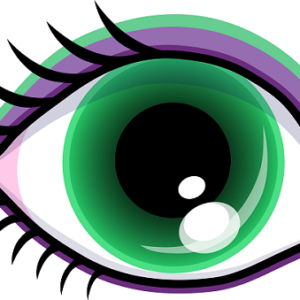June 30, 2022

Are both of your eyes the same color throughout, or do they feature multiple colors? Rarer still, are each of your eyes completely different colors? Whether your irises consist of more than one color, or you simply appreciate the variety of eye colors that humans and animals can have, you will want to take note of National Different Colored Eyes Day! Observed each year on July 12, it is a day to raise awareness and celebrate the uniqueness of having different colored eyes.
When an individual has more than one eye color, it is a condition called heterochromia iridum or heterochromia iridis. Heterochromia is typically either hereditary or caused by genetic mutations, but it can also result from disease or injury. There are three variations of heterochromia — complete, sectoral, and central. Complete heterochromia means that each eye is a completely different color than the other. Sectoral heterochromia is when a section of one iris is a different color than the rest of that iris. And finally, there is the central heterochromia variation, which is when there is ring of color around the pupil that is a different color than the remainder of the iris. Central heterochromia is the most common form, and is most noticeable in irises that contain low amounts of melanin.
